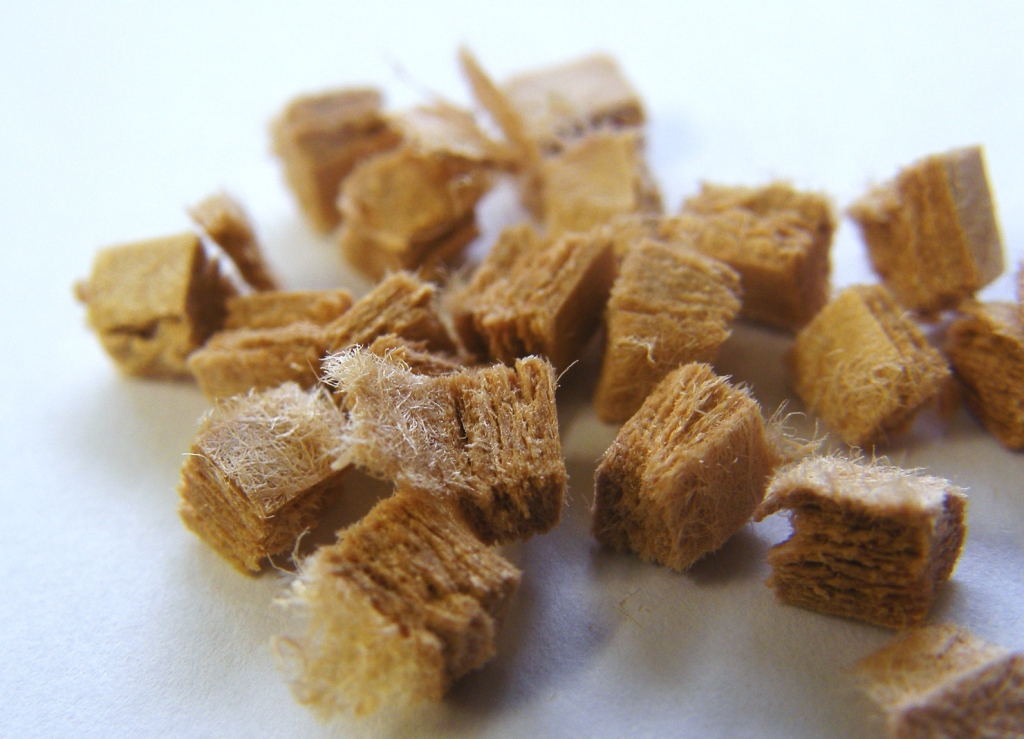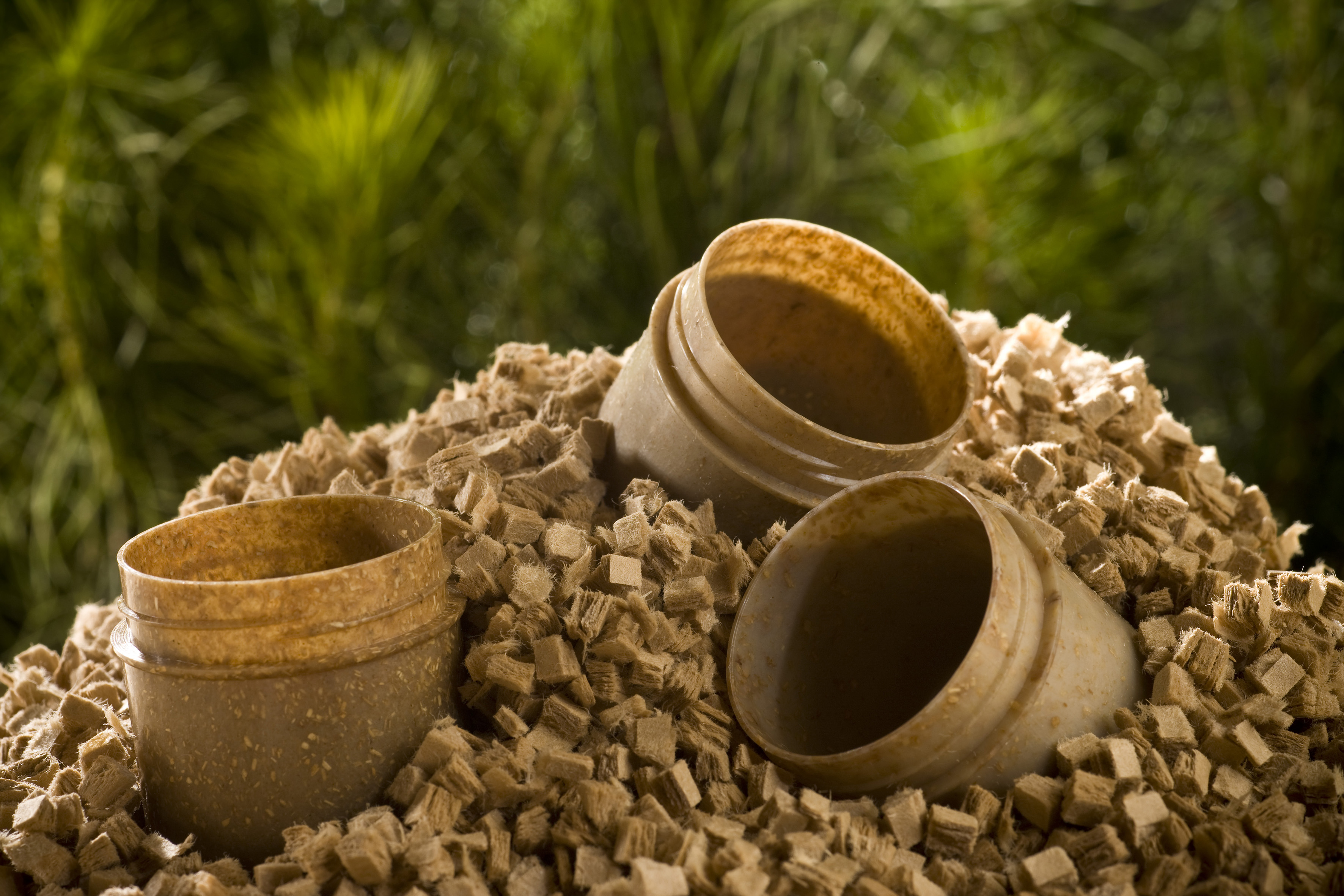World-leading wood fibre dice usher in sustainable, high-performance future
The global plastics industry is set to benefit from world-leading wood fibre dice that will help position New Zealand as a leader in sustainable materials.
Developed by the Bioeconomy Science Institute and licensed exclusively to ConiForme, the fibre dice technology of the same name means wood fibres can be used to make sustainable, lighter plastics for the automotive, furniture, consumer products, appliances and packaging industries. This will establish New Zealand as a global leader, as demand for sustainable plastics and the need for continued innovation across global markets increase.

The fibre dice – so-called because of their square shape that enables easier cutting – are produced in a small size that can be easily handled by existing plastics processing machinery. They can reduce tooling abrasion and shorten processing cycles while enhancing mechanical properties, dimensional stability and scratch resistance for high-performance results. The dice hold wood fibres together until they are released and evenly dispersed into the plastic resin. This technology addresses the odour, quality and consistency challenges that come with other natural fibre solutions.
The Bioeconomy Science Institute began working with ConiForme in 2021 to commercialise the dice technology. ConiForme general manager Jeremy Warnes says ensuring technologies are developed to meet market needs takes time, and it’s an exciting step to now be able to take the fibre dice to market. “This technology delivers environmental benefits, fantastic properties and production efficiency improvements. It's a win for everyone.”
Composites made using wood fibre dice are produced from renewable resources and are more sustainable than glass fibre equivalents. They are also easily recyclable and help manufacturers meet legislative end-of-life requirements,” he says.
ConiForme is working with the Daiken Corporation, a leading MDF manufacturer, and its subsidiary Daiken New Zealand to produce the dice. Daiken MDF business operating officer Takahisa Honda says manufacturing ConiForme wood fibre dice is an exciting evolution of MDF business in New Zealand. “It opens doors to new markets in construction materials as well as in auto parts, food packaging and beyond – all while driving innovation and advancing sustainability.”

According to Research and Markets, the global natural fibre composites market is projected to reach $18.65 billion by 2030, with an expected 12 percent compound annual growth rate from 2025. “We see the market growing, driven by increasing consumer demand for sustainable plastics, evolving legislative requirements and the need for improved performance, particularly in automotive applications,” Jeremy says. “As industry trends continue to accelerate, this will create exciting opportunities for our partners.”
ConiForme has aligned with ITOCHU Plastics Inc. to distribute the wood fibre dice in Asia and is currently in testing with plastics processors and manufacturers in Japan, the EU and the US.
